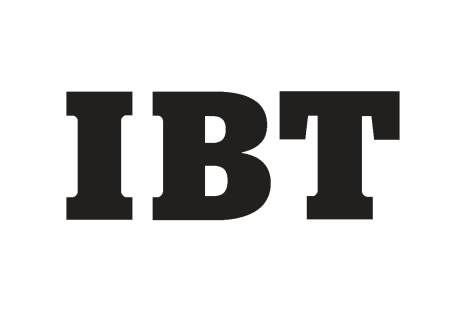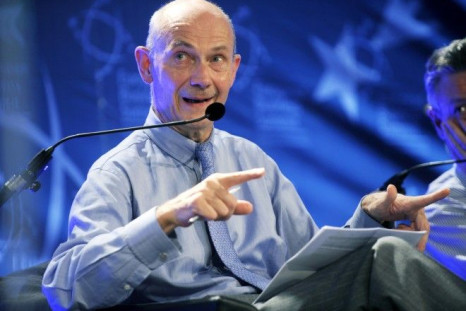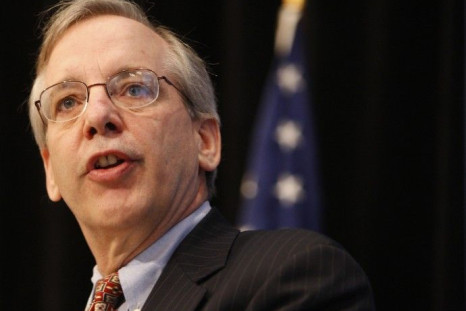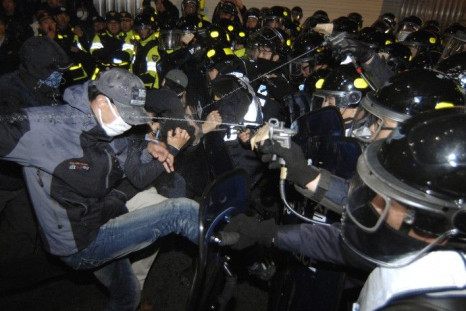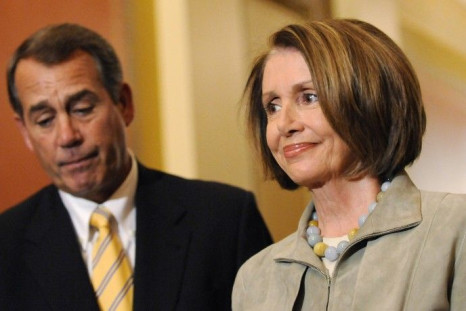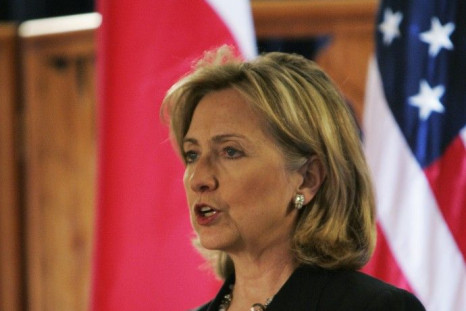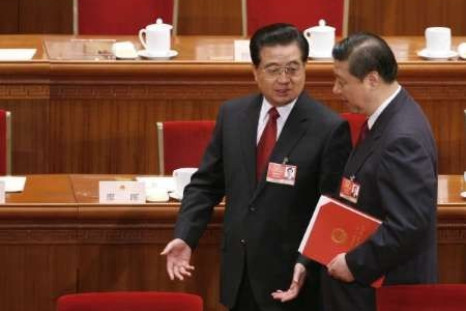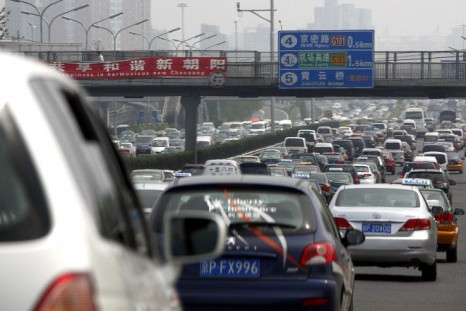Fed likely to buy all $600 bln for QE2, open to QE3
The Federal Reserve is likely to spend the entire $600 billion allocated for the second round of quantitative easing (QE2) and is open to a third round (QE3) if the economy performs worse than expected.
I can't convince Americans to buy gold: Cramer
Former hedge fund manager Jim Cramer said he can't convince Americans that their government's choice to get this economy moving again is to debase its currency, so [they] need another currency, namely gold.
Don’t blame bubbles on the Fed: Dudley
New York Fed President William Dudley said loose monetary policy from the Federal Reserve was not the chief cause of the subprime mortgage crisis.
NY Fed chief downplays debt monetization label
William Dudley, president of the New York Federal Reserve, downplayed the charge that the Federal Reserve is monetizing U.S. government debt. The Fed is accused of doing so because it is engaged in quantitative easing.
Hedge funds load up on Apple in 3Q
Prominent hedge funds loaded up on Apple (NASDAQ:AAPL) shares in third quarter 2010, according to SEC 13F filings.
WTO chief optimistic about global trade talks
WTO director-general Pascal Lamy said statements from G20 and APEC leaders last week “provided a clear signal that they expect the Doha Development Round to be a deliverable next year.”
World Bank expands political risk insurance program for private investors
The World Bank, through the MIGA, significantly expanded the eligible pool of projects it would guarantee for private foreign companies investing in projects in developing countries.
Specter of Irish bailout looms
Europe's sovereign debt crisis is flaring up again and Ireland, the center of focus this time around, is pushed closer to needing a bailout.
Zoellick brings up gold standard, but why such opposition?
World Bank President Robert Zoellick is the most high-profile person in recent history to bring up the gold standard. However, his endorsement was almost universally dismissed as too archaic and impractical.
U.S. economic policy stuck in pre-1970s era
U.S. economic policy is stuck in the pre-1970s era, which had higher population growth. Before 2008, this outdated policy caused boom-and-bust cycles. Now, it is failing to boost economic growth and possibly endangering the world financial system.
Opinion: Dumb money starts to buy gold, rally to continue
Dumb money is beginning to pour into gold. However, gold fever has not yet taken over the public imagination and there are still many potential buyers on the sidelines. The rally is therefore likely to continue.
Existing govt debt is safe : EU finance ministers
On Friday at the G20 summit, finance ministers of France, Germany, Italy, Spain, and Britain issued a joint statement saying the holders of any existing euro zone government debt are safe from regulatory changes that would force them to take on additional losses.
QE2 officially begins
The much anticipated, talked about, and at times criticized program of the second round of quantitative easing has begun.
Reflation-driven rally may end in crash in a few years
Stocks, through quantitative easing, are pushed higher and into bubble territory. In a few years, the market could crash and fall as much as 50 percent, said Jeremy Grantham of GMO LLC.
G20 Seoul summit means buy gold : Jim Cramer
Jim Cramer, a financial pundit and former hedge fund manager, said the best way of making money off the G20 Seoul summit is betting it won't go well. And one bets against the summit by buying gold, he said.
G20 Seoul summit agenda
The global currency war will likely dominate discussions at the G20 Seoul summit. Other issues on the agenda include global financial regulation, development gaps, and dealing with disruptive capital inflow and outflows.
PIMCO worried about inflation, recommends buying TIPS
Experts at PIMCO, which has the world's largest bond fund, said inflation is a medium and long term concern and investors should therefore consider purchasing more inflation-sensitive assets.
U.S. deficit panel unveils proposal to save $4 trillion by 2020
The National Commission on Fiscal Responsibility and Reform, a bipartisan commission recently created by President Obama, unveiled a proposal that could save the U.S. government nearly $4 trillion from 2012 to 2020.
Class struggle at the G20 summit
Two things are always present at G20 summits: the gathering of the most powerful international elites and the gathering of common citizens and workers to protests against them.
Where are the Fed's newly-printed dollars going?
To the dismay of policy makers, the newly-printed dollars of the Federal Reserve has not found its way to the real U.S. economy in the form of loans to small businesses and consumers. A key question is if they are sitting in the U.S. financial system or flowing to emerging market economies.
QE2 inflates commodities, threatens 70s-styled malaise
QE2 is a rising tide that lifts all boats. The boats, in this case, refers to asset prices. Unfortunately, some asset rallies, particularly those in consumer and industrial commodities, are bad for the real economy,
Odds stacked against peripheral Europe
Peripheral Europe faces waning public demand because of austerity measures, conditions that make exports difficult, and a banking sector that has not recovered well from the financial crisis. All this comes at a time when recovery is still fragile and the risks of a double-dip recession are real.
Stimulus now, but is austerity even possible later?
The United States, which has not yet been punished by bond vigilantes for its enormous public debt, is keeping fiscal stimulus policies intact for the short-term. While many economists support this decision, the key question is if it will be able to enact necessary fiscal austerity measures in the future.
West increasingly concerned about China's rare earth monopoly
China has had a near-monopoly on the production of rare earth metals for years. Recently, however, its market dominance has taken center stage and the West is increasingly expressing concerns.
Did U.S. and China strike a currency deal?
Behind the scenes, China and the U.S., two major combatants, may already have already struck an agreement, said Douglas Borthwick, head trader of Connecticut-based Faros Trading.
Economic implications of Xi Jinping's rise to leadership
Xi Jinping will likely be China's next President. Given his background, he is likely to favor coastal regions and continue China's export-driven economic model, and therefore unlikely to pursue structural reforms like distributing income to inner regions or taking dramatic steps to cultivate domestic consumption.
U.S. calls for yuan rise because China stopped buying its debt: Sinn
Hans-Werner Sinn, a professor at the University of Munich and the president of the Ifo Institute, has a controversial theory of why the U.S. is all of sudden crying for yuan appreciation.
China's trump card: monopoly in rare earth metals
China's monopoly on rare earth metals gives it an important diplomatic advantage over other countries.
Global Demand Shifting to Emerging Markets
Global demand is increasingly shifting to emerging economies, and American firms, especially small businesses, should adjust to this new reality.
BOJ intervention: will it work?
Analysts generally think BOJ's intervention was well executed and will perhaps work in the short-run. The long-term effectiveness, however, is uncertain.



